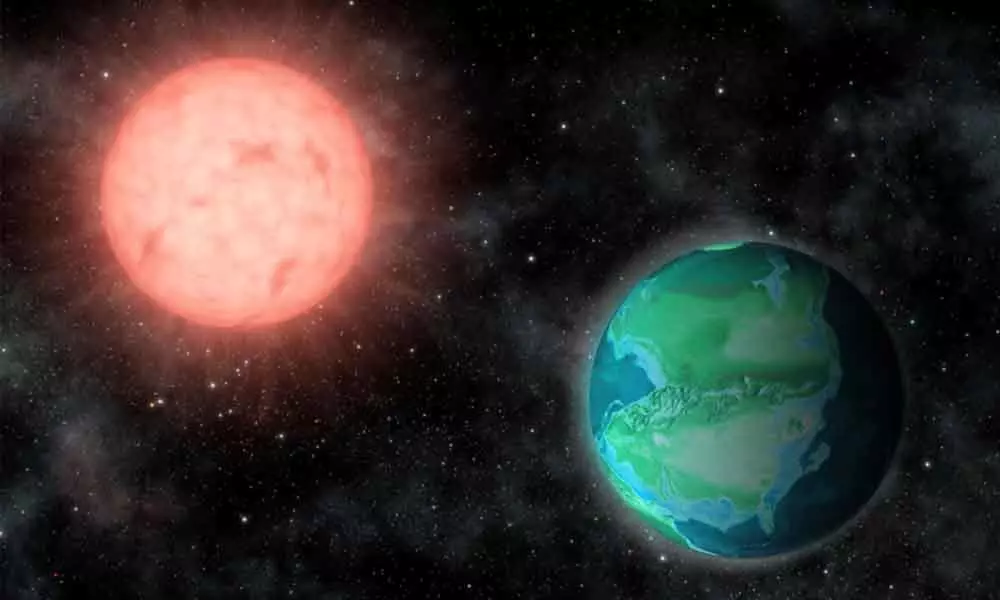Star flares can make exoplanets less habitable: Study

Not all the exoplanets that lie in the "habitable zones" of stars - where planets are thought to be able to maintain liquid water on their surface - will be able to maintain hospitable conditions for life, scientists say.
Not all the exoplanets that lie in the "habitable zones" of stars - where planets are thought to be able to maintain liquid water on their surface - will be able to maintain hospitable conditions for life, scientists say.
The researchers from the New York University in the US noted that an exoplanet that is too close to its host star is highly sensitive to radiation bursts from the star, also known as flares. This can disrupt habitable conditions unless the exoplanet has significant atmospheric or magnetic shielding, they said. The study, published in the journal Monthly Notices of the Royal Astronomical Society: Letters, explored how flares from stars affect a planet's surface radiation dose, and if that can disrupt the planet's ability to host life. The role of a planet's magnetic field strength and its atmosphere in providing shielding from these bursts was also examined. The factors measured include flare strength and spectrum, as well as the planetary atmospheric density and magnetic field strength.
The researchers concluded that flares can abruptly increase the radiation level on planetary surfaces and have the capability to disrupt potentially habitable conditions on planets. They also found that the atmospheric depth and planetary magnetic field are major factors in protecting planets from flares and maintaining a substantial planetary atmosphere. "As we continue to explore the planets of the solar system and beyond, discovering if these planets have the ability to support life continues to be of immense importance," said Dimitra Atri from New York University. "More progress in this area will improve our understanding of the relationship between extreme solar events, radiation dose, and planetary habitability," Atri said in a statement.
















